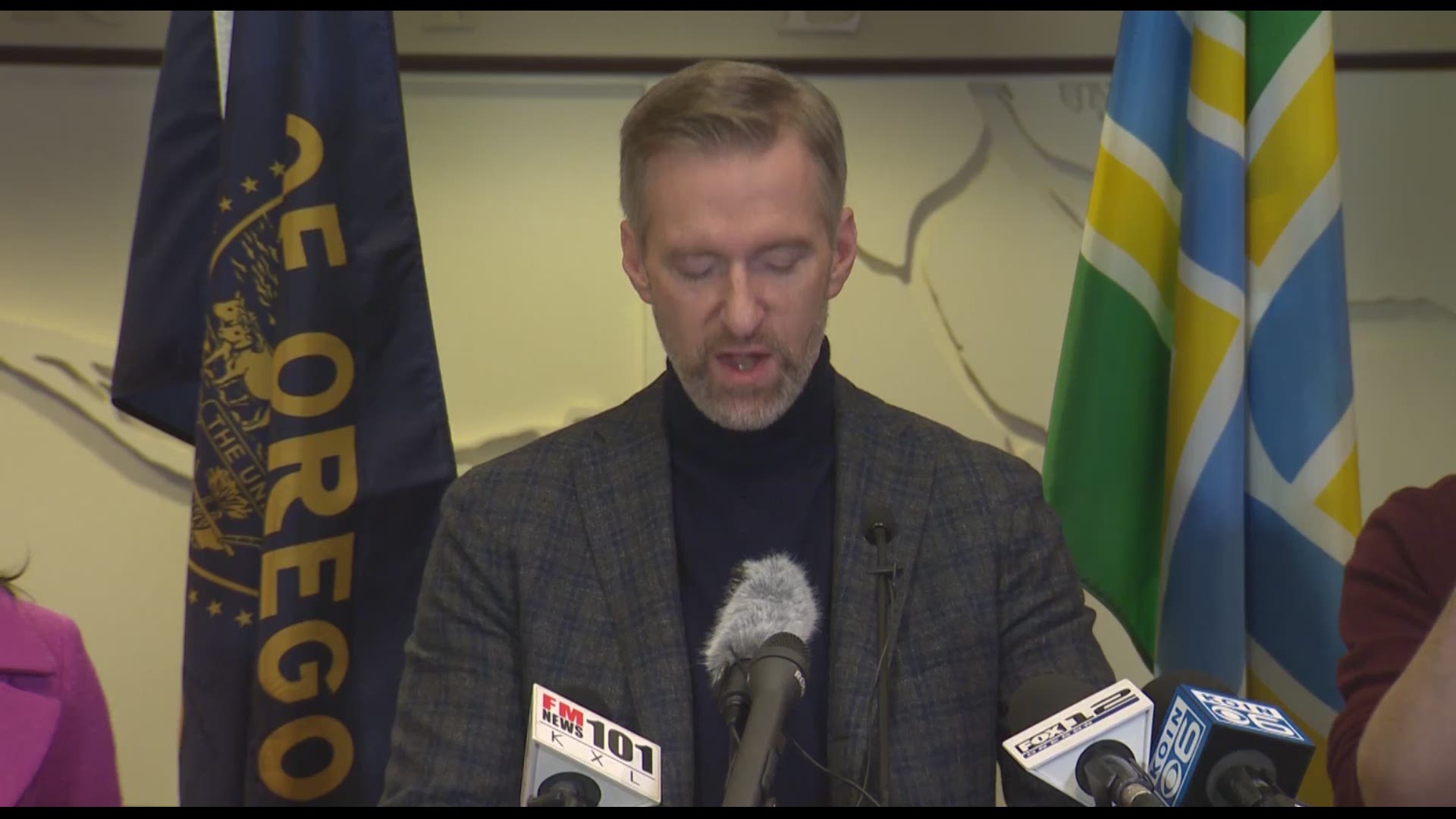PORTLAND, Ore. — TriMet is vowing to make its carbon footprint smaller and has laid out an eight-step plan to do so.
On Friday, TriMet General Manager Doug Kelsey said in a written statement, “For the past 50 years, TriMet has been helping the region reduce auto emissions by providing an estimated 3.3 billion rides with our transit service, while also exploring opportunities to reduce our own carbon emissions. Today TriMet is redoubling our efforts with specific actions that will reduce our carbon footprint even more. The time for meaningful actions to address the climate crisis is now.”
This will be accomplished by following eight steps, according to Oregon’s largest transit agency.
1.Converting MAX to 100% wind power by Feb. 2020
The MAX is already green in the sense that it runs on electricity. However, by Feb. 1, 2020, Kelsey said that the MAX will be run on 100% wind power.
2. No more diesel buses will be purchased after 2025
As diesel buses are retired after 2025, TriMet said it will not purchase more to replace them. Instead, it will bring on zero-emission buses. By 2030, it said it will have at least 340 electric buses.
In a partnership with PGE, TriMet already has five electric buses that are already 100% wind-powered. In the first six months of using these buses, TriMet said it used 11,000 gallons less of diesel fuel and dropped its emissions by 250,000 tons.
3. Begin to use renewable diesel by April 2020
For the diesel buses currently in the TriMet fleet, the company has said it will begin using renewable diesel instead of traditional fossil fuels no later than April 2020. Kelsey said that TriMet is also moving to transition the paratransit vehicles to renewable diesel.
Renewable diesel, a lower-emission fuel, is expected to reduce emissions by 30%-50%, according to TriMet. It contains 1% fossil fuel and is sustainable, often made of resources like natural fats, vegetable oils and gases.
4. Making other TriMet vehicles electric
TriMet said it has 285 other vehicles for its employees to use for various work purposes. It wants to make that fleet electric before 2030. For the heavy-duty trucks in that fleet that cannot be converted into electric, TriMet is looking into using renewable diesel to power them.
5. Youth pass program
TriMet General Manager Doug Kelsey and Mayor Ted Wheeler said they supported the expansion of the Youth Pass program as broadly as possible. It will be a priority for the 2020 transportation ballot being developed by Metro, according to TriMet.
The Metro ballot measure also includes funding for the Southwest Corridor Light Rail Project which could provide up to 40,000 trips a day, which would feasibly reduce emissions by getting vehicles off of the road.
6. Carbon analysis and a net-zero carbon strategy
TriMet said it would conduct a study of its current carbon footprint not just with its cars, buses and various transportation vehicles, but also at its facilities. The agency will look at its procurement practices and maintenance programs to establish a “carbon baseline.” It will use that study to try to identify how to bring carbon emissions down to zero. There is no date associated with this goal, according to the TriMet website.
7. Carbon lens
TriMet spokeswoman Roberta Altstadt said the agency will be using a “carbon lens” for any future projects. From expansion to new services that TriMet will offer or need for its own maintenance as a business, it will be carbon-conscious as it moves forward.
8. Carbon emission testing
TriMet said it is looking into placing sensors on its buses to monitor the air quality in the neighborhoods where service is provided. This information could be used as a map to help target emission reduction efforts.
TriMet is also calling on the community to reduce emissions by riding more public transit.

